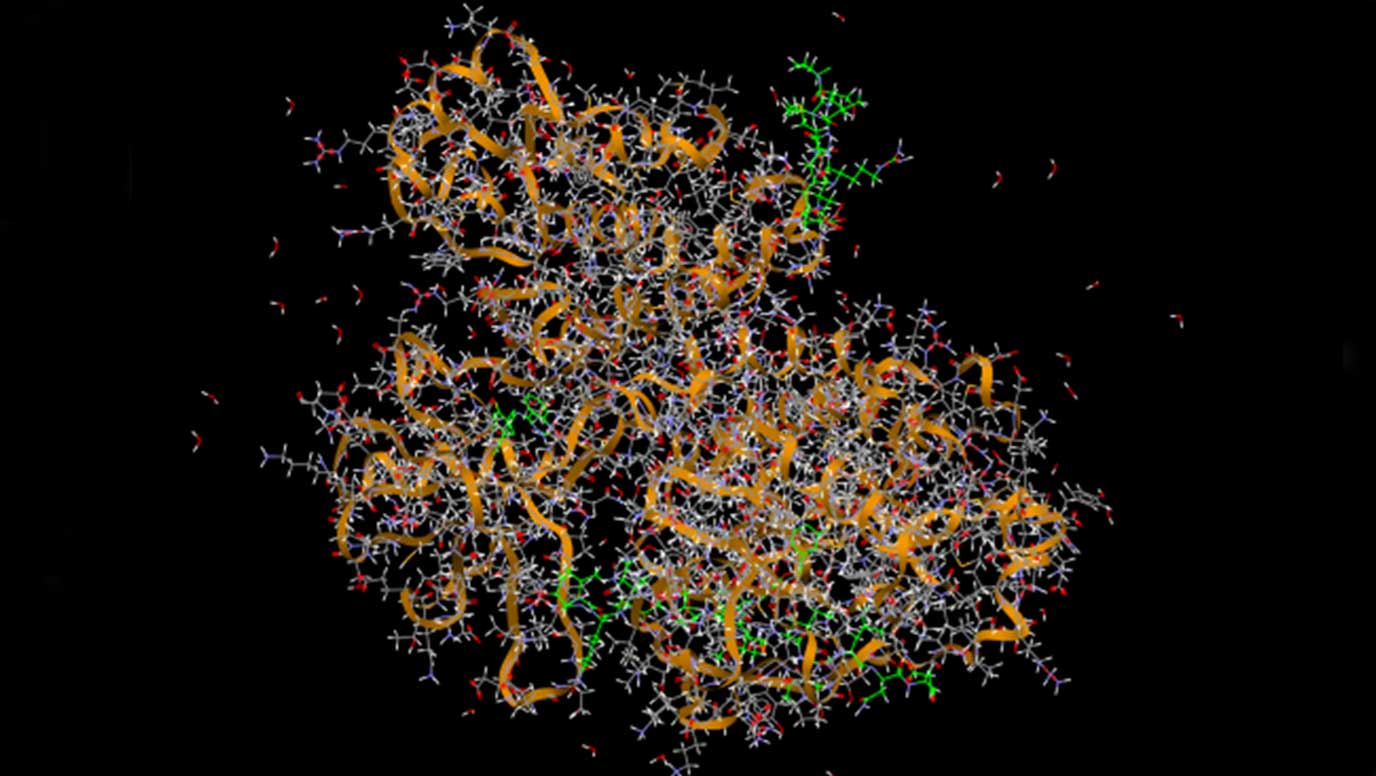CCDC and partners Intel and Amazon hail drug discovery advance

CCDC says that, thanks to the combined computing power of its partners in the project, a curated data set of protein structures from the Protein Data Bank (PDB) with predicted hydrogen positions is now available for download. The project was supported by an Intel RISE Technology Initiative contribution.
Historically, collaborations with the pharmaceutical industry have enabled the development of reliable methods for interpreting interactions within protein binding sites using proprietary information not publicly available.
Repeating these studies with PDB structures presented a challenge due to the absence of hydrogen positions in water networks within the proteins. Reliable predictions require databases of augmented protein structures where hydrogen positions are assigned.
Generating this information computationally is intensive, considering multiple possible models. Overcoming this computational challenge was possible for the CCDC through the combined power of Intel and AWS.
The CCDC generated a comprehensive snapshot of protein cavities in the PDB, identifying potential binding sites for small molecules with accurately predicted hydrogen positions for all components. It cited three major benefits from the collaboration:-
• Accessibility: This data set is freely available, enabling widespread use in drug discovery research and development.
• Efficiency: By providing precomputed hydrogen positions, researchers can save valuable time and resources, eliminating the need for redundant computations.
• Environmental Impact: Reducing the necessity for repeated computations lowers the environmental footprint of large-scale computational tasks.
Dr Juergen Harter, CCDC CEO, said: “We were delighted to partner with AWS and Intel on this project to provide another valuable structural science resource to enhance the drug discovery process in the pharmaceutical industry.
“The output from the project now being free to all further emphasises our commitment to FAIR data and our consideration of the environmental impact of repeated computation.”
Jason Cole, Senior Research Fellow at CCDC, also highlighted the impact of this project. He said: “With the power of Intel and AWS, we’ve presented researchers with predictions of protonation states in important protein structures, potentially saving hundreds of thousands of hours of life sciences research time across the globe.”
AWS is a a subsidiary of Amazon that provides on-demand cloud computing platforms and APIs to individuals, companies, and governments, on a metered, pay-as-you-go basis. Clients will often use this in combination with autoscaling. Intel is a Californian headquartered but globally influential semiconductor innovator.
The Cambridge Crystallographic Data Centre is a global leader in structural chemistry data, software and knowledge for materials and life sciences R & D.
Specialising in the collation, preservation and application of scientific structural data, CCDC offers the renowned Cambridge Structural Database, a trusted resource containing fully curated organic and metal-organic structures utilised by researchers worldwide.
As well as providing essential data services, CCDC is committed to inspiring the next generation of scientists through educational outreach and programs including PhD sponsorships.

